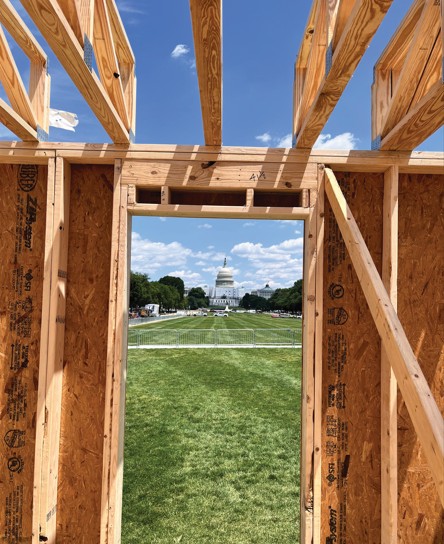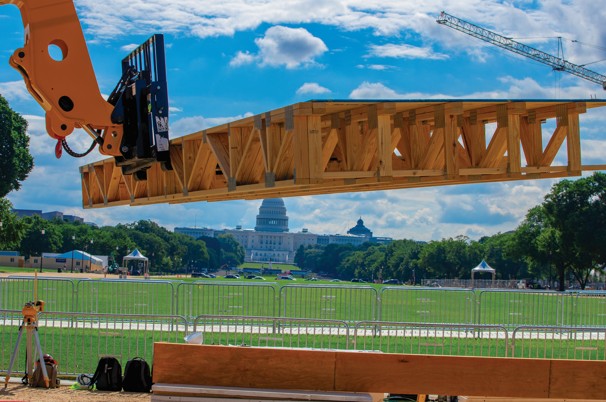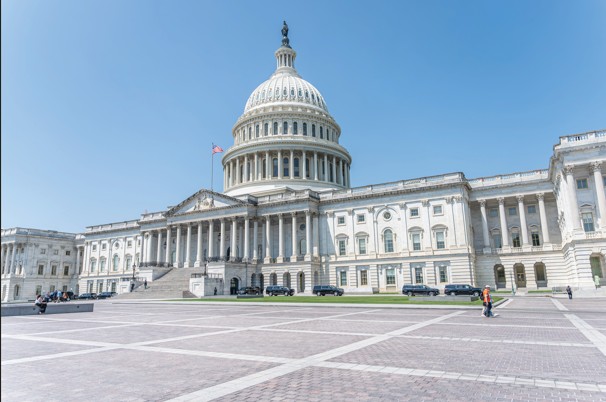A Hill Worth Charging
Why SBCA is re-establishing its commitment to advocacy
By Sean D. Shields
 Advocacy is fundamentally about cultivating and nurturing relationships. When you actively participate in advocacy efforts, you are essentially building strong connections with influential individuals in your community who are uniquely positioned to assist you in overcoming challenges and seizing opportunities for growth. As you’ve undoubtedly learned in this industry, relationships matter greatly, not just for immediate problem-solving, but also for long-term business success.
Advocacy is fundamentally about cultivating and nurturing relationships. When you actively participate in advocacy efforts, you are essentially building strong connections with influential individuals in your community who are uniquely positioned to assist you in overcoming challenges and seizing opportunities for growth. As you’ve undoubtedly learned in this industry, relationships matter greatly, not just for immediate problem-solving, but also for long-term business success.
Recognizing the importance of advocacy efforts, the SBCA held its June Open Quarterly Meeting in Washington, D.C., in addition to other meeting activities, invited component manufacturers, framers, and industry suppliers from across the country to join them for a day on Capitol Hill visiting with members of Congress and beginning the process of putting our industry back on their radar.
The return of SBCA to Capitol Hill this year symbolizes a renewed commitment to advocacy, underscoring the vital role relationship building plays in shaping a favorable business environment for the structural building components industry.
Relationship Building
Lawmakers at the state and federal levels play pivotal roles that directly impact your business. They craft legislation influencing everything from property and casualty insurance to property taxes, workers’ compensation, immigration, and affordable housing. These regulations, for better or worse, can shape your company’s operating environment. Gaining influence over the language contained in laws affecting these policies takes a slow and steady approach that requires a long-term commitment.
For example, Allen Erickson worked for many years at Cal-Asia Truss in Southern California. He spent most of that time cultivating relationships with his congressman. When an issue arose concerning a loophole in the oversized permit regulations that, in effect, allowed eight-foot and ten-foot wall panels, but did not allow nine-foot wall panels to be hauled horizontally, Allen discovered that he couldn’t get anywhere in his appeals to the California Highway Patrol or California Dept. of Transportation. So, he reached out to his congressman who helped connect him with the right state lawmakers to amend state statutes to eliminate the loophole.

Photo courtesy of 84 Lumber/Kisker Productions
But building these relationships isn’t just about affecting laws. In fact, that should probably be viewed as a secondary goal. Elected officials carry significant clout within their communities, and their support can break down barriers that hinder business operations and efforts to expand. Over the years, several component manufacturers have pointed to relationships they’ve made with their congressional lawmakers and staff that have helped them get connected to the right people when they sought help in the form of economic development grants, workforce training funds, worker visas, and even building permits.
Similarly, building code officials and inspectors wield substantial influence over local code adoption and enforcement. Positive relationships with these officials can significantly ease business operations, ensuring smoother code inspections and more favorable interpretations of building codes. Conversely, strained relationships can result in delayed projects, increased costs, and challenging compliance hurdles. Proactively establishing good communication and mutual understanding with these officials not only addresses current issues, but also positions companies to advocate for future favorable code interpretations and even amendments to the codes themselves.
Individual and Industry Benefits
You and your company can gain considerable influence through your personal advocacy efforts. Since its inception over 40 years ago, SBCA has encouraged and supported grassroots legislative advocacy at the company level, recognizing that personal interactions, like facility tours for elected officials, effectively solidify the industry’s presence and significance in lawmakers’ minds. In this arena, what is good for one company is typically good for the entire industry.
 Capitol Hill, Washington, D.C.
Capitol Hill, Washington, D.C.
Photo: Panaskopic Productions
At the same time, SBCA has always recognized that collective advocacy efforts significantly amplify individual actions. Participation through SBCA chapters or national-level SBCA activities allows companies to leverage broader industry representation, thus achieving greater influence than they sometimes could individually. Collaborations, such as those between SBCA and the National Association of Home Builders (NAHB) or National Lumber and Building Material Dealers Association (NLBMDA) highlight the power of joint advocacy efforts.
These cooperative activities over the years have repeatedly demonstrated their ability to effectively address mutual legislative concerns, such as insurance reform and affordable housing. SBCA’s Board of Directors has repeatedly sought these kinds of collaboration because of the amplified potential for change when distinct organizations with complementary strengths and goals unite toward common legislative goals, emphasizing that collective action typically yields positive outcomes and enhanced industry-wide visibility beyond that which SBCA could accomplish on its own.
Re-Commitment to Advocacy
In 2025, SBCA marked a significant milestone by returning to Capitol Hill in Washington, D.C., after a decade-long absence. This move underscores SBCA’s strategic re-emphasis on advocacy as a cornerstone of industry success. By re-engaging directly with congressional leaders and federal agencies, SBCA is rekindling critical relationships that impact the structural building components industry on a national scale. This renewed presence on Capitol Hill reflects a proactive stance, demonstrating to lawmakers the essential contributions of component manufacturers to national economic and housing agendas. Such high-level engagement complements grassroots efforts, enhancing the industry’s overall advocacy capabilities.
 SBCA Leadership meets with Speaker Johnson’s Office in Washington, D.C.
SBCA Leadership meets with Speaker Johnson’s Office in Washington, D.C.
Early and frequent interaction with lawmakers and code officials, particularly those new to their office or position, offers unique opportunities to embed industry concerns into legislative agendas and code enforcement priorities. SBCA members, like Rick Parrino at Lumber Specialties, have exemplified this approach by successfully establishing productive relationships with key state and federal legislators, as well as code officials. His connections with all these individuals allow him to weigh in when needed and have a significant influence on legislative and code outcomes. He has spent years traveling, attending meetings, and talking with these well-connected and influential people. In return, his cultivated relationships offer practical business benefits in the form of better laws and regulations in his state affecting component manufacturing, and a more favorable building code environment.
If you didn’t travel to D.C. and participate in SBCA’s Legislative Fly-in, you still have an opportunity to get involved and engage in the industry’s efforts to re-connect with federal, state, and local officials. It is always a good time to reach out to these people and, as a first step, invite them to take a tour of your manufacturing facility during the traditional Congressional recess in August. Plant tours are the most effective way to capture their attention, explain your business model, capabilities, and expertise, and talk about the challenges you face that they can potentially affect in a positive way. Without an existing relationship, it can take persistence to convince them to take a tour, but once they’re in the door, our industry’s collective experience indicates they won’t ignore you when you call upon them again.
Bottom Line
Building relationships with public officials and advocating for your company and the industry is not merely beneficial; it is essential. Whether pursued individually, at a company level, or collectively through local or national associations, these efforts enhance your business’s capacity to navigate regulatory landscapes effectively, influence policy proactively, and leverage community and political connections for sustained growth. The return of SBCA to Capitol Hill this year symbolizes a renewed commitment to advocacy, underscoring the vital role relationship building plays in shaping a favorable business environment for the structural building components industry.
Please reach out to Christine Wagner for more information on advocacy efforts and helpful materials, at
cwagner@sbcacomponents.com.
